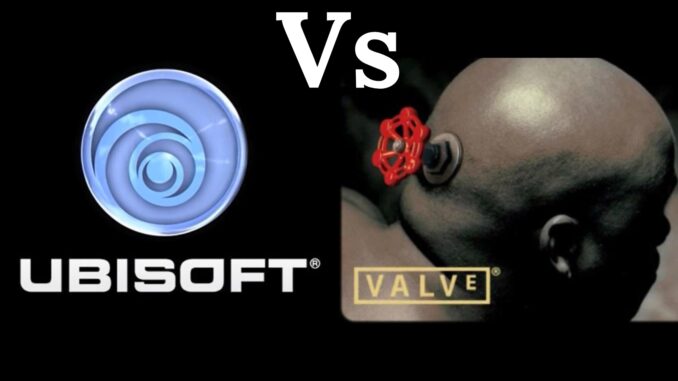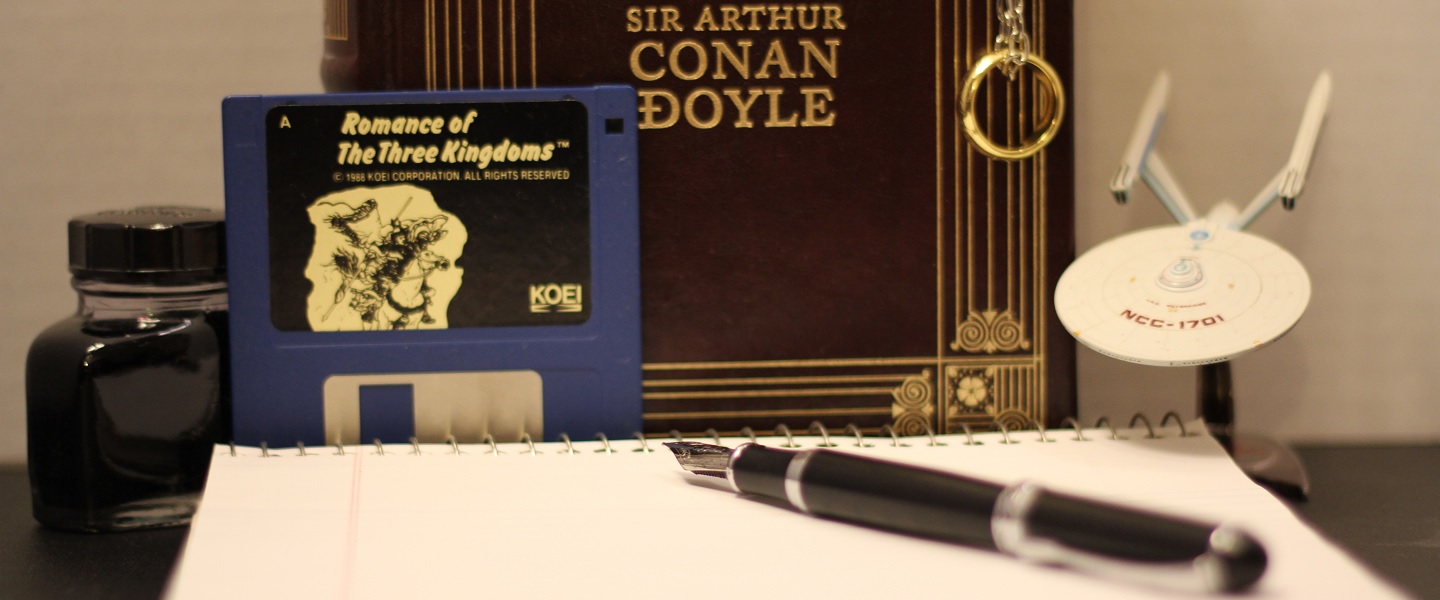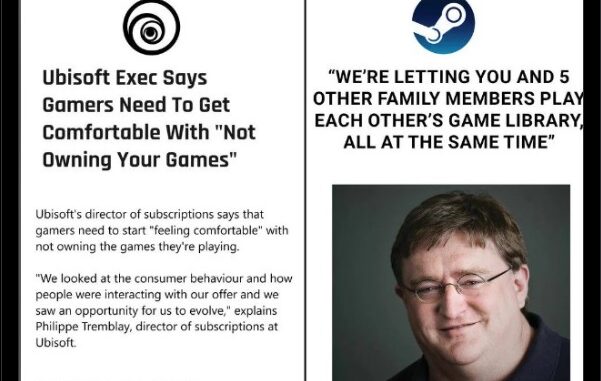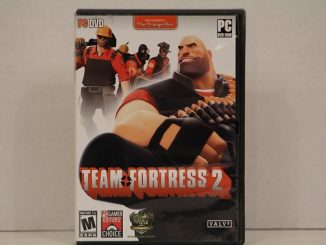
2024 has been an outstanding year for Ubisoft when it comes to controversy. The company released the underdeveloped Skull & Bones (quadruple-A quality), a lackluster Star Wars Outlaws, a soon-to-be-released racist Assassin’s Creed Shadows, and shutting down games among many other issues. Back in January, the company made sure to set the theme for 2024 when Ubisoft director of subscriptions Phillippe Tremblay stated that, “…it’s about feeling comfortable with not owning your game” when talking about subscription services. As expected, the comment caused an uproar from the gaming community and comparisons were made between Ubisoft and Valve. But most gamers and content creators have forgotten one simple thing – both companies don’t let you own the games you buy. So what is the difference between Ubisoft and Valve when it comes to video game ownership?
When it comes to video game ownership, gamers lost that battle a long time ago and very few fought to retain that ownership. Those that did, either gave up because gamers didn’t care or were drowned out by the media juggernaut marching in lockstep. Now, there is a new wave of content creators and influencers who oppose the issues within the video game industry. However, they do so without either knowing, ignoring, or being oblivious to the foundational issues that persist today. To the point where they damn Ubisoft and praise Valve without realizing the cognizant dissonance of their statements.
After all, Valve releasing Steam, their digital distribution platform, led the charge for stripping away gamers’ ownership over their physical game copies.
Granted, before the release of Steam, game developers and publishers were already taking steps to remove consumer ownership such as limiting the amount of times you could install a game or use the CD Key. Sadly, the industry was already trying to make that shift. Valve just happened to take the path, that is the gaming industry’s final destination, first.
Now, every game, whether singleplayer or multiplayer, requires an internet connection to activate it before the consumer can play it on the PC platform. There are also a plethora of digital distribution platforms that consumers must use in order to play the game they purchased; even having to create and possibly install a third-party account which is a problem in and of itself. One exception being GOG.com where you can buy your digital copy and play it without needing to be connected to a service.
But when it comes to game ownership, Valve and Ubisoft are both equally as bad. Ubisoft just happened to be exceptionally retarded when it came to how it handled its anti-gamer stance which involved lying to sell copies, draconian DRM, a crappy Uplay platform, the ability to remove games from your library, and ever-declining quality of games being released. And it still continues to be retarded in all of these regards.
Valve, which experienced a lot of backlash in the early days of Steam’s release, continued to improve the platform to be the very best in the industry that has yet to be equaled by its competitors. The smorgasbord of features, services, game catalog, and even the ability to make money has certainly glossed over the fact that gamers no longer own their games. But that doesn’t negate the fact that you don’t own the games you bought.
A fact that consumers were painfully reminded of when the French court ruled against Valve to allow gamers to re-sell their digital copies which was later reversed in Valve’s favor.
Sure, Valve is feeding you a pretty-looking sugar pill while Ubisoft is just forcing a spoon full of arsenic down your throat, but the result is the same. You have to give up your rights to ownership if you want to play the game you purchased on their platforms. While Ubisoft has forcibly removed gamers from users’ libraries, most people forget that Valve can easily do the same thing.
So it is unfortunate to see content creators such as @kabrutusrambo condemn Ubisoft over game ownership while praising Valve for allowing family members to share game libraries at the same time, even though both companies have taken away that ownership. It’s one of main critiques to be made when it comes to the current group of influencers and content creators who are focused on DEI, which is the latest issue in gaming, but either don’t, or rarely, bother with the core issues of the industry.
It’s one thing to, rightfully so, condemn Ubisoft when it says that “…it’s about feeling comfortable with not owning your game.” But when you try to compare Ubisoft with Valve when Valve does the same thing, just undermines your point. One certainly has to applaud Kabrutus for his efforts to combat DEI, it’s just that, in the pursuit of gaining traction and remaining relevant, the more prevalent issues are being lost in the sauce.
Game ownership and what rights you have when it comes to digital game copies.
However, this is not surprising. Just like the video game journalists, they are all chasing the current click-baiting trends in pursuit of clicks, grifts, and checks.
Just remember, whether it is Ubisoft, Electronic Arts, Epic Games, or Valve – it is all the same. You don’t own your games. Valve just happens to be nicer about it.
So when you die, or a digital platform goes under, it is game over. You don’t get to pass your digital game library on to someone else. Because you don’t own anything.
Author’s Note: Support this site by donating via Paypal or even checking out our merchandise on Redbubble where you can find designs that cater to writers and readers. Money donated and raised goes into paying for this website and equipment.





[…] The company has been in the midst of a number of controversies such as gamers need to start “feeling comfortable with not owning your game” to releasing a half-baked Skull and Bones, the reception of Star Wars Outlaws, and delaying the […]
[…] course, paying $70 for a digital copy of a game that you do not own or have any rights to is the final reason for why you shouldn’t purchase Civilization VII. To be […]
[…] of pushing many of the issues that plague the gaming industry today. From draconian DRM to stripping away consumer ownership, the Assassin’s Creed developer was also quick to embrace always-online practices, predatory […]
[…] game. A sad, yet common trend in PC gaming which has been at the forefront of stripping away the right to own the games we buy, acceptance of draconian DRM, being fine with invasive DRM, and a multiplayer landscape that is […]